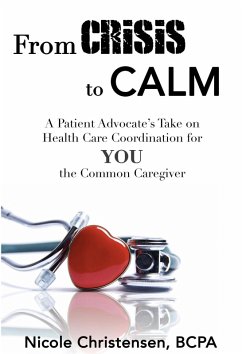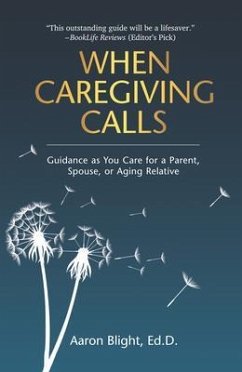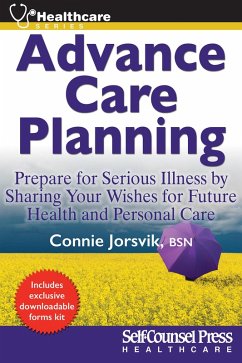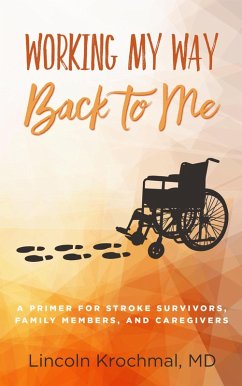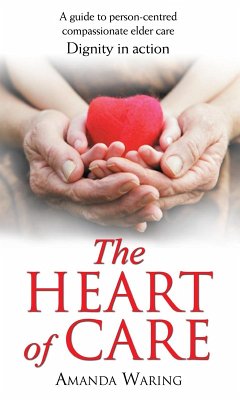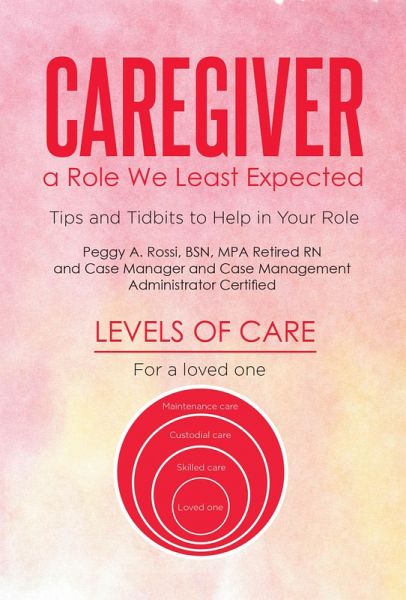
Caregiver: a Role We Least Expected (eBook, ePUB)
Tips and Tidbits to Help in Your Role
Versandkostenfrei!
Sofort per Download lieferbar
7,99 €
inkl. MwSt.
Weitere Ausgaben:

PAYBACK Punkte
4 °P sammeln!
Health care is hard enough for many of us already in its arena. I cannot imagine what it is like to be in your shoes! As such, as I have worked with families over the years, I always tried to break care down into steps they could follow, giving them resources to explore as their loved one either progressed or got worse. Not only can one's health insurance be complicated and at times very confusing, but the health care arena in which we can receive care is also a maze. Even we in the health care profession can find it hard to navigate.Caregiving is possibly one of the hardest of jobs one can ha...
Health care is hard enough for many of us already in its arena. I cannot imagine what it is like to be in your shoes! As such, as I have worked with families over the years, I always tried to break care down into steps they could follow, giving them resources to explore as their loved one either progressed or got worse. Not only can one's health insurance be complicated and at times very confusing, but the health care arena in which we can receive care is also a maze. Even we in the health care profession can find it hard to navigate.
Caregiving is possibly one of the hardest of jobs one can have, and that goes for any of us in the industry when we are likewise exposed to the job for our own loved one. Unfortunately and sadly, unlike us in health care, where we may have had training in some of the areas we will use, you are often left alone, not knowing where to go to for help or get the training you need to perform a task.
This book is written to explain some of the areas that may be confusing. Equally as important, it is to help educate you on the resources you may wish to explore, as there is never a one-plan-fits-all. Thus, educate yourself on your loved one's injury or illness and then explore some of the resources a community or your loved one's state may have available to assist you. This process will allow you to set up a plan that works better for you and your caregiving situation.
Key as you take care of your loved one is to also take the time to take care of yourself--not only physically but also emotionally and mentally. If not, your best-laid plans will go astray if you must have care yourself. Often, taking care of ourselves is to start by being able to simply say yes or no at the right time. This can be a yes when someone offers to help or a no when you know you cannot do it. Also, keep in mind, you are often the eyes, ears, and voice for your loved one; so learn to advocate for both of you as needed.
Best of wishes to you and your loved one, and welcome to the health care arena, as you, like other caregivers, are the backbone for care outside the hospital.
Caregiving is possibly one of the hardest of jobs one can have, and that goes for any of us in the industry when we are likewise exposed to the job for our own loved one. Unfortunately and sadly, unlike us in health care, where we may have had training in some of the areas we will use, you are often left alone, not knowing where to go to for help or get the training you need to perform a task.
This book is written to explain some of the areas that may be confusing. Equally as important, it is to help educate you on the resources you may wish to explore, as there is never a one-plan-fits-all. Thus, educate yourself on your loved one's injury or illness and then explore some of the resources a community or your loved one's state may have available to assist you. This process will allow you to set up a plan that works better for you and your caregiving situation.
Key as you take care of your loved one is to also take the time to take care of yourself--not only physically but also emotionally and mentally. If not, your best-laid plans will go astray if you must have care yourself. Often, taking care of ourselves is to start by being able to simply say yes or no at the right time. This can be a yes when someone offers to help or a no when you know you cannot do it. Also, keep in mind, you are often the eyes, ears, and voice for your loved one; so learn to advocate for both of you as needed.
Best of wishes to you and your loved one, and welcome to the health care arena, as you, like other caregivers, are the backbone for care outside the hospital.
Dieser Download kann aus rechtlichen Gründen nur mit Rechnungsadresse in A, D ausgeliefert werden.







